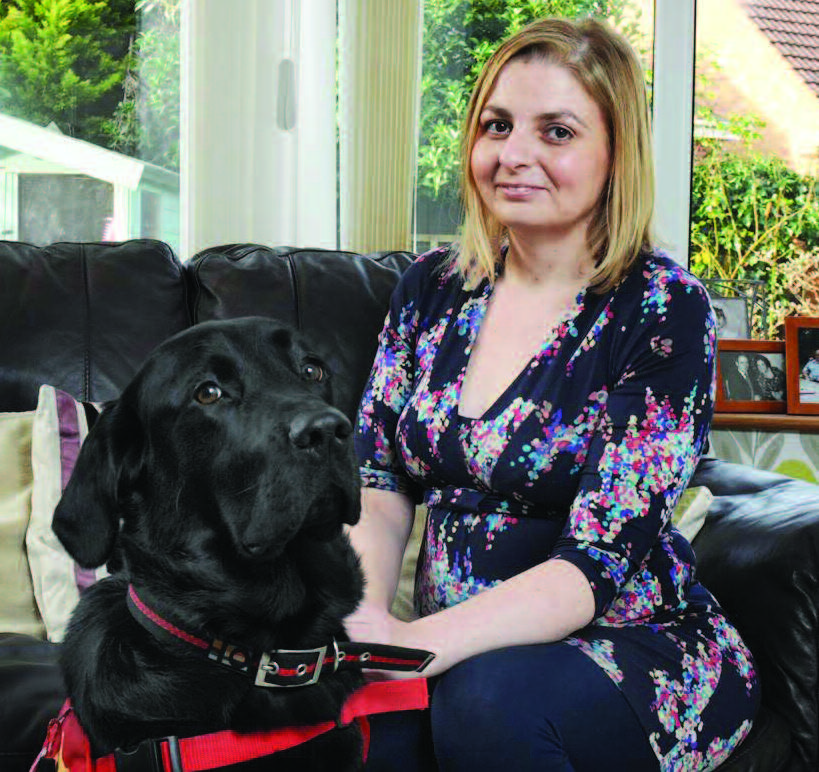
Samantha and Charlie
Samantha and Charlie

Samantha was diagnosed with Postural Tachycardia Syndrome (PoTS) in 1999 but had suffered blackouts since the early 90s.
PoTS causes Samantha to collapse and become unconscious for anything from minutes up to an hour. She frequently convulses, drifting in and out of conciousness before gaining awareness and being able to communicate.
Samantha struggles after blackouts and sometimes is unable to move much or speak for the rest of the day because speech is not a survival need and her body is still in crisis, trying to recover.
Samantha also suffers from hyper mobility syndrome (HMS), She said, “My joints are twisted and muscles too stretchy. As I get older my HMS worsens and the stiffness in my joints increases. I often freeze when walking and can’t move my legs, even mid stride!
“Daily struggles mean I can’t get out of chairs or even have strength to open a door. HMS is common in people with chronic PoTS and the symptoms of each worsens the other.”
Since having Charlie she has seen a significant difference in her quality of life. “His alerts are so reliable that I no longer worry about blacking out and being in danger or embarrassed. I haven’t fallen to the floor or not been safe since I have had him which is remarkable. My blackouts are still frequent and sometimes severe but I’m safe which is priceless.”
She added, “We haven’t had to cancel any appointment or family events since having Charlie yet prior to having him this was a frequent issue. I’ve also had more confidence attending medical appointments as I’m no longer at risk of unalerted collapse.
“When I’m out I feel safe with him by my side and am panicking less in crowded areas which I’m sure helps to prevent blackouts. I feel much safer alone at home all day and enjoy the company that Charlie is, he is keeping me more active through play and taking him for walks when I’m able to get out.
“My neighbour often takes us with her dog for a long woodland walk which is exhilarating for us especially as I’m otherwise cooped up indoors.
“He has fitted straight into family life and we all adore him and couldn’t imagine life without him.”
PoTS (Postural Tachycardia Syndrome) is an abnormal response by the autonomic nervous system to becoming upright. There is an abnormally high increase in heart rate and altered blood supply to the brain on standing. It results in a large number of symptoms, the commonest of which are dizziness, fainting, tiredness and palpitations. There are many causes and, in some cases, no cause can be found. Although patients can be very disabled by their symptoms, many get better without treatment. However, some patients will have problems over many years.
